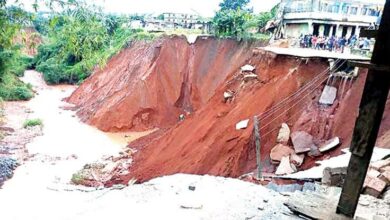Anambra Needs To Harness Bamboo Benefits : Ogbodo Declares

The Director, Sahelian Institute for Bamboo Research, Entrepreneurship Development, (SIBRED), Nnamdi Azikiwe University, Awka, Dr. John Ogbodo, wants the government and people of Anambra State to promote the cultivation of bamboo to mitigate climate change impacts.
Angel Network News (ANN) reports that
Ogbodo made the call during a Green Sustainability Forum organized by the United Nations Sustainable Development Solutions Network (UN SDSN) as part of the National Green Campaign.
“Bamboo mitigates climate change through carbon sequestration. It has an impressive carbon storage capacity.
“Woody bamboo absorbs carbon faster than hardwood tree species because of its fast growth rate as a grass.”
Speaking on the topic, “Climate Resilient Bamboo Based Farming Systems for Net Zero Achievement in Anambra Communities”, SIBRED Director said bamboo also offers other benefits such as windbreaks and boundary markers.
Consequently, he urged the Anambra State Government to promote and champion its cultivation across the state, especially at riverbank and flood- and erosion-prone areas.
“Bamboo plays multiple crucial roles in farming systems, including soil and water conservation, and economic benefits for farmers.
“It helps stabilize soil, prevent erosion, and improve water retention. Its rapid growth and ability to thrive on degraded land make it a sustainable resource for farmers.
“Bamboo can also be used as a renewable material for various agricultural purposes, generating additional income and supporting local economies.
“Bamboo enhances soil quality and prevents erosion through its robust root system, which stabilizes the soil. Additionally, bamboo cultivation can help reduce soil salinity.
“Bamboo is a means of additional revenue streams for farmers. Its shoots serve as food products, while bamboo can be used for crafts and furniture.
According to him, bamboo is also helpful in conserving water and improving watershed management, as well as supporting biodiversity and creating wildlife habitats.
“It reduces water runoff that leads to erosion and contains natural water filtration properties. It attracts beneficial insects and also provides shelter for local wildlife.”
He pointed out that maintaining bamboo is less expensive after its establishment because it thrives with organic manuring and resists common pests and diseases.
“Bamboo provides natural building materials for farm infrastructure. It offers what we call bamboo-based irrigation systems and can be used to construct low-cost farming structures,” Ogbodo concluded.








